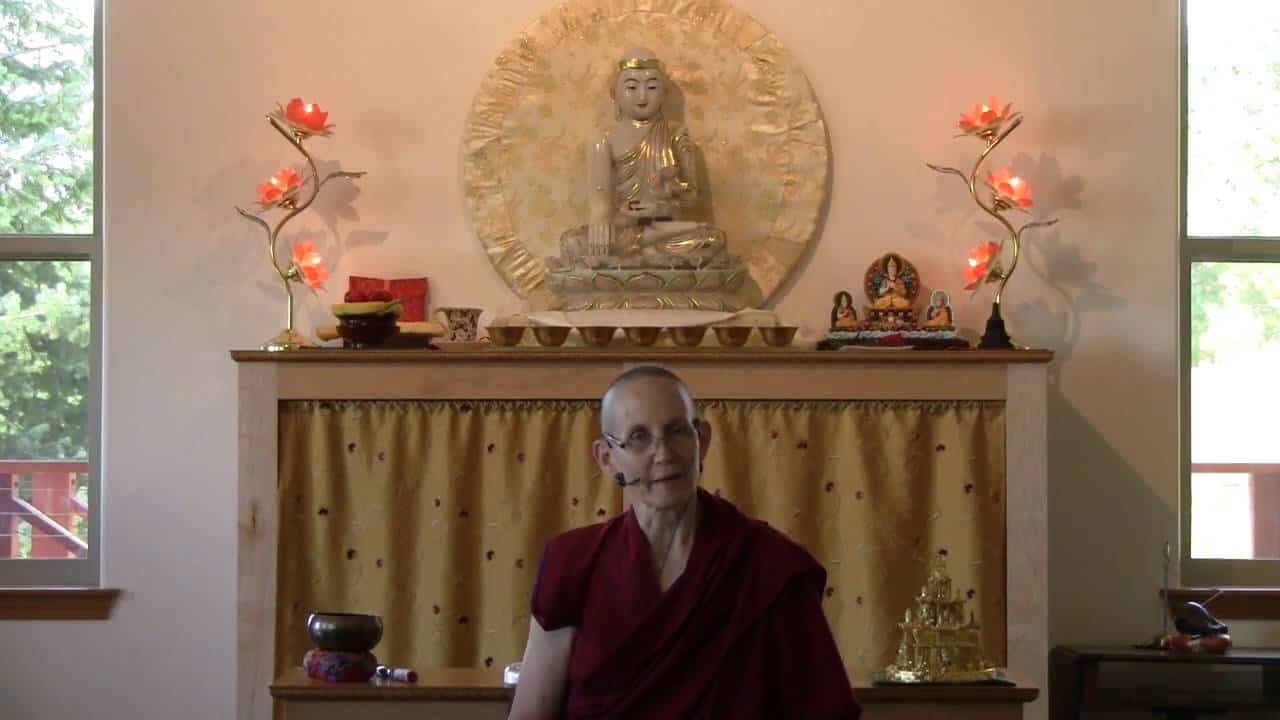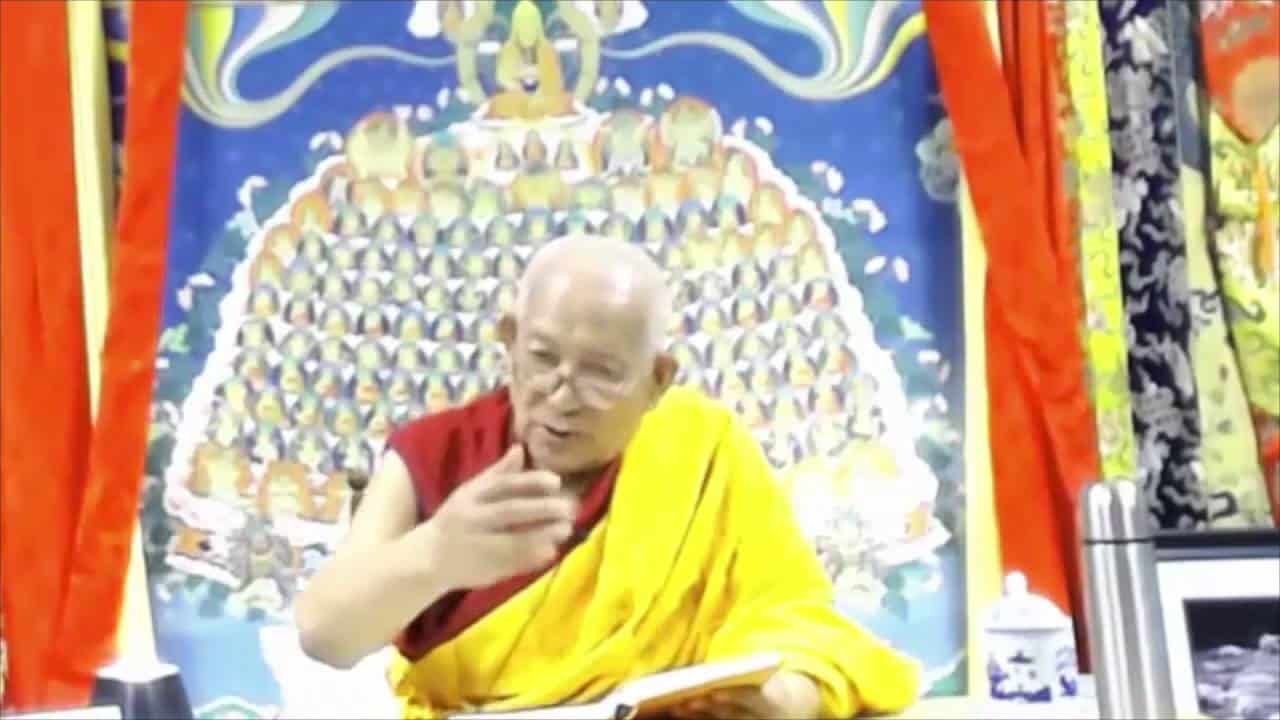Chapter 9: Verses 212-218
Chapter 9: Verses 212-218
Part of a series of teachings on Aryadeva’s 400 Stanzas on the Middle Way given on an annual basis at Sravasti Abbey by Geshe Yeshe Thabkhe beginning in 2013.
Questions and answers
- Regarding the overview of the path, how do the Buddha’s teachings on selflessness and emptiness differ for those aspiring for liberation vs. those aspiring for full awakening?
- What does ‘selflessness’ mean for Svatantrika-Madyamaka school and below?
- Does refuting a personal self in Verses 203 and 204 work only if you accept the Buddha’s statement as the proof?
Verses 212-218
- Refuting permanent particles
- Refuting that particles are partless prior to the formation of a composite
- If particles were partless, they wouldn’t be able to form composites because movement from one position to another would be unfeasible
- Refuting belief in the existence of permanent particles because there are things we can observe
Geshe Yeshe Thabkhe
Geshe Yeshe Thabkhe was born in 1930 in Lhokha, Central Tibet and became a monk at the age of 13. After completing his studies at Drepung Loseling Monastery in 1969, he was awarded Geshe Lharampa, the highest degree in the Geluk School of Tibetan Buddhism. He is an emeritus professor at the Central Institute of Higher Tibetan Studies and an eminent scholar of both Madhyamaka and Indian Buddhist studies. His works include Hindi translations of The Essence of Good Explanation of Definitive and Interpretable Meanings by Lama Tsongkhapa and Kamalasila's commentary on the Rice Seedling Sutra. His own commentary, The Rice Seedling Sutra: Buddha’s Teachings on Dependent Arising, was translated into English by Joshua and Diana Cutler and published by Wisdom Publications. Geshela has facilitated many research works, such as a complete translation of Tsongkhapa’s The Great Treatise on the Stages of the Path to Enlightenment, a major project undertaken by the Tibetan Buddhist Learning Center in New Jersey where he teaches regularly.


